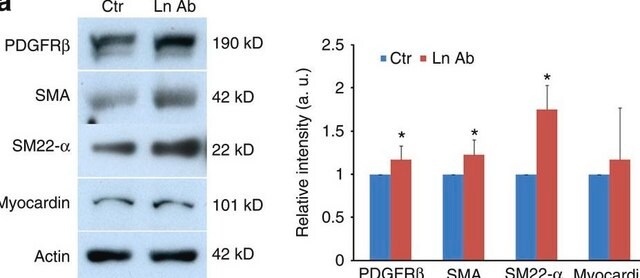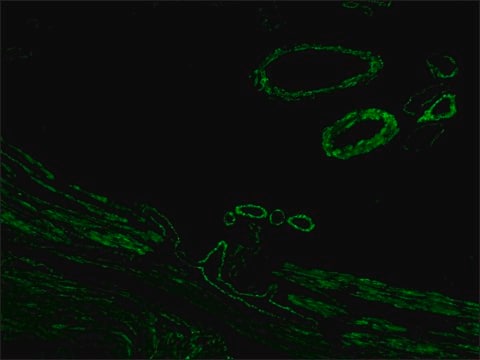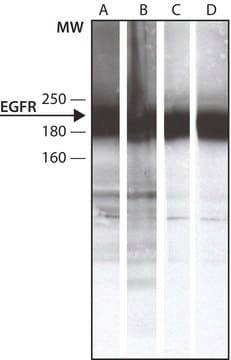P1869
Anti-Phosphotyrosine antibody, Mouse monoclonal
clone pT-154, purified from hybridoma cell culture
Synonyme(s) :
Phospho-Tyr, Phospho-tyrosine, p-Tyr
About This Item
Produits recommandés
Conjugué
unconjugated
Forme d'anticorps
purified immunoglobulin
Type de produit anticorps
primary antibodies
Clone
pT-154, monoclonal
Concentration
~2 mg/mL
Technique(s)
direct ELISA: suitable
immunohistochemistry: suitable
microarray: suitable
western blot: 2-4 μg/mL using total extract of A431 cells stimulated by EGF
Isotype
IgG2b
Conditions d'expédition
dry ice
Température de stockage
−20°C
Modification post-traductionnelle de la cible
unmodified
Description générale
Immunogène
Application
- enzyme linked immunosorbent assay (ELISA)
- western blot
- immunohistochemistry
Actions biochimiques/physiologiques
Forme physique
Clause de non-responsabilité
Vous ne trouvez pas le bon produit ?
Essayez notre Outil de sélection de produits.
Code de la classe de stockage
10 - Combustible liquids
Point d'éclair (°F)
Not applicable
Point d'éclair (°C)
Not applicable
Certificats d'analyse (COA)
Recherchez un Certificats d'analyse (COA) en saisissant le numéro de lot du produit. Les numéros de lot figurent sur l'étiquette du produit après les mots "Lot" ou "Batch".
Déjà en possession de ce produit ?
Retrouvez la documentation relative aux produits que vous avez récemment achetés dans la Bibliothèque de documents.
Notre équipe de scientifiques dispose d'une expérience dans tous les secteurs de la recherche, notamment en sciences de la vie, science des matériaux, synthèse chimique, chromatographie, analyse et dans de nombreux autres domaines..
Contacter notre Service technique








